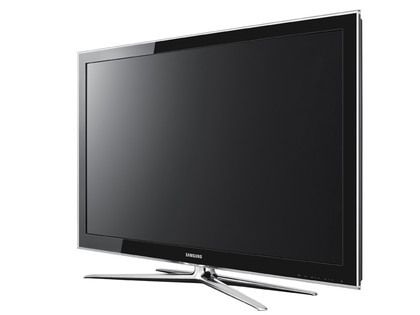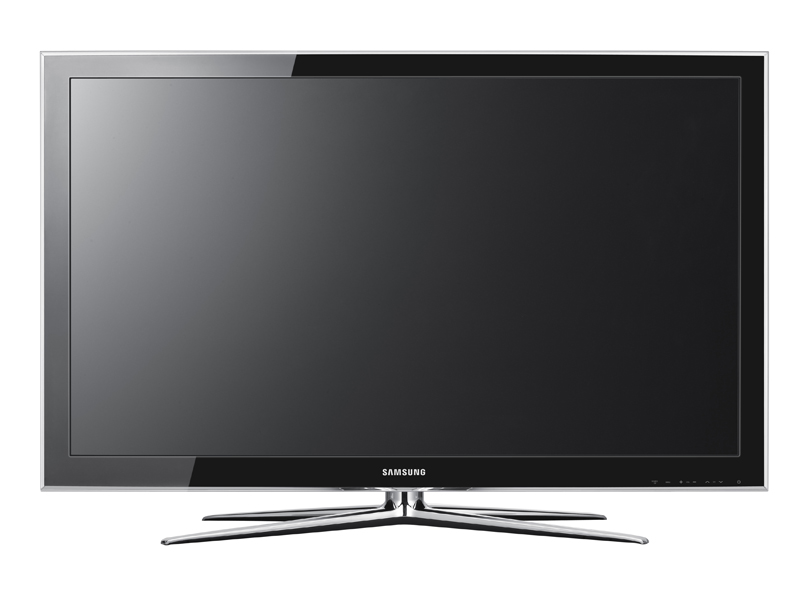Why you can trust TechRadar
Despite its bulk and relatively low price, the LE46C750 is very well specified.
The LE46C750 employs an active, frame-sequential system, rather than the passive technology found on LG's LD950 model. The set also retains the 2D-3D conversion system sported by Samsung's swankier, edge-lit models.
The frame-sequential method means, of course, that you have to use expensive active shutter glasses to enjoy 3D pictures. So it's a pity that Samsung still isn't including even one pair in with the TV as standard.
You can currently get a single pair sent out to you free if you register the TV online, but this will still leave the average family needing to add at least another £300 to their bill if they anticipate having family 3D nights. Even the one-pair-free glasses deal is only temporary one, so we can't guarantee you'll still be able to get them if you don't buy the TV reasonably soon.
Samsung seems very aware that good motion handling is essential with an LCD TV if it's going to produce a convincing 3D effect, so it's not altogether surprising, but no less welcome, to find the LE46C750 bearing Samsung's 400 Clear Motion Rate (CMR) processing. This appears to be effectively a different way of saying 400Hz, which is itself a slightly misleading way of saying '200Hz plus a scanning backlight'.
Well connected
Connectivity points to a healthy selection of other features. There's an Ethernet port, for starters, which delivers a cool trilogy of tricks. It's there to provide the obligatory support for the set's built-in Freeview HD tuner, so you can use future interactive services the broadcaster might offer. Plus, you can use it with the set's Media Play service to access files on a networked PC. And, finally, you can use it to access Samsung's Internet@TV online service, to which we'll return later.
The 46C750's multimedia talents are further bolstered by a pair of USB ports, which have two different uses. First, you can add Wi-Fi to the set via an optional extra USB dongle. Second, you can play back a wide variety of photo, music and video files stored on USB memory devices.
Further multimedia flexibility comes from the TV's support for AllShare, which enables you to connect compatible phones and portable media devices to the 46C750 so that it can notify you if you have text messages and incoming calls, enable you to check you device's calendar; or play multimedia files stored on those external devices.
Other important connections on the 46C750 beyond those already mentioned include four HDMIs (all v1.4 for 3D plus audio return channel) and a D-Sub PC port, while other key specifications for the screen include the now inevitable full HD resolution, a high (for CCFL LCD) claimed contrast ratio of 300,000:1 and a screen that uses one of Samsung's Ultra Clear Panels for reduced reflectivity and better contrast.

Optimising the 46C750's pictures comes courtesy of a reasonably extensive set of tools and adjustments. Among the highlights are a three-level black level booster, a shadow detail booster, a three-level dynamic contrast adjustment, a gamma adjustment, a facility to adjust the brightness of the red, green and blue colour elements, a skin tone adjustment, separate digital and MPEG noise reduction circuits and a very helpful system for adjusting the 'Motion Plus' processing.
You can choose the basic level of strength of the latter, depending on how comfortable you feel with the artefacts it generates, or you can choose to tweak it yourself manually via sliding bar adjustments for the system's blur and judder reduction elements.
Internet@TV
Let's wrap this section up with the 46C750's Internet@TV platform. Samsung has recently added LoveFilm to its online offering, which has enhanced the service considerably. Other key services include the inevitable YouTube, rovi TV listings, Facebook, Twitter, Picasa, GoogleMaps, a few basic games, the recently added BBC iPlayer, and a few small, daily update-style Widget Apps from the likes of The History Channel and USA Today.
It's hard to fault Internet@TV for the variety of its content now; it's certainly improved considerably even over the past couple of months. Sony still has the edge when it comes to the sheer volume of streaming video content available, but Samsung is now hot on its heels.
Current page: Samsung LE46C750: Features
Prev Page Samsung LE46C750: Overview Next Page Samsung LE46C750: Ease of useJohn has been writing about home entertainment technology for more than two decades - an especially impressive feat considering he still claims to only be 35 years old (yeah, right). In that time he’s reviewed hundreds if not thousands of TVs, projectors and speakers, and spent frankly far too long sitting by himself in a dark room.

